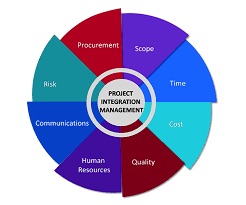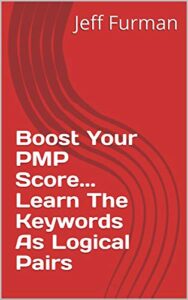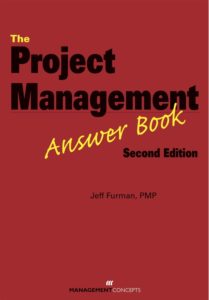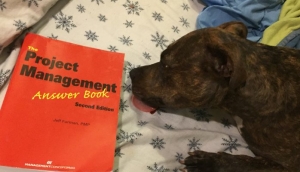Many test-takers make the mistake of studying Integration Mgt only at the beginning of their test-prep.
RECOMMENDATION: Boost your PMP score by studying it FIRST and LAST.
5 Reasons Why Integration Mgt Needs A Deep-Dive In Your Final Test-Prep:
1) Integration Mgt BEGINS all projects
So you need to study the 7 Integration Processes first, especially the one that kicks off all projects:
- Develop Project Charter
2) But Integration Mgt also ENDS all projects
- Close Project or Phase
So it helps to skim Integration Mgt early on, but to come back for a second pass after you’ve studied the other Knowledge Areas.
3) The PMP Test is in 5 Parts, and 2 of those are mostly Integration Mgt
The PMP exam breaks out into 5 parts (one for each Domain). And 2 out of 5 are mainly Integration, as follows:
INITIATING – There are only 2 processes in this Domain, and one is an Integration process:
- Develop Project Charter <== Integration Mgt
- Identify Stakeholders
CLOSING – There is only one process in this Domain, and it’s an Integration process
- Close Project or Phase <== Integration Mgt
So by giving special attention to Integration Mgt toward the end of your test prep, you will also be picking up more points toward the Initiating & Closing Domains.
4) Three of the Integration processes are High-Level — with subordinate processes below them
The following 3 Integration processes are High-Level. They are started early on the project, so they need to be studied early. But later, as the project progresses, they interact heavily with many other processes. So it’s important to go back and re-study them:
- Develop Project Management Plan – has many subordinate planing processes, which contribute sub-components up to the Project Management Baseline created in this Integration Mgt process.
- Monitor And Control Project Work – There are many subordinate processes contributing Work Performance Info, enabling the Work Performance Reports to be created here up in Integration Mgt.
- Direct And Manage Project Work – Similarly, there are many executing processes below this Integration Mgt process also.
The more you understand these 3 high-level processes (above) the better you’ll understand the many processes that interface with them.
5) Two more of the Integration processes are executed throughout the project
- Perform Integrated Change Control – Change requests can come up at all times on a project, and are handled in this process.
- Manage Project Knowledge – Lessons Learned can also be captured at any point in the project.
Because these two processes are executed multiple times on projects, it’s very helpful to your test-prep to revisit them on the back-end of your studying, to make sure you understand them well in relation to the many other processes.
YOU MIGHT ALSO LIKE TO SEE:
1) My New Kindle Book (only $2.95 on Amazon)
Boost Your PMP Score: Learn The Keywords As Logical Pairs
2) My PMP Book: HOLIDAY SALE (50% Off!)
The Project Management Answer Book, 2nd Edition
- Both editions: Paperback and eBook are on-sale for 1/2 price for the week of December 7 – 15.
- $39.97 for the Paperback (Free Shipping)
- $33.58 for the eBook
- Use Gift Code: ONWARD
*Credit for the graphic at the top of Integration + the 9 other Knowledge Areas: iCertGlobal dot com




Leave A Comment